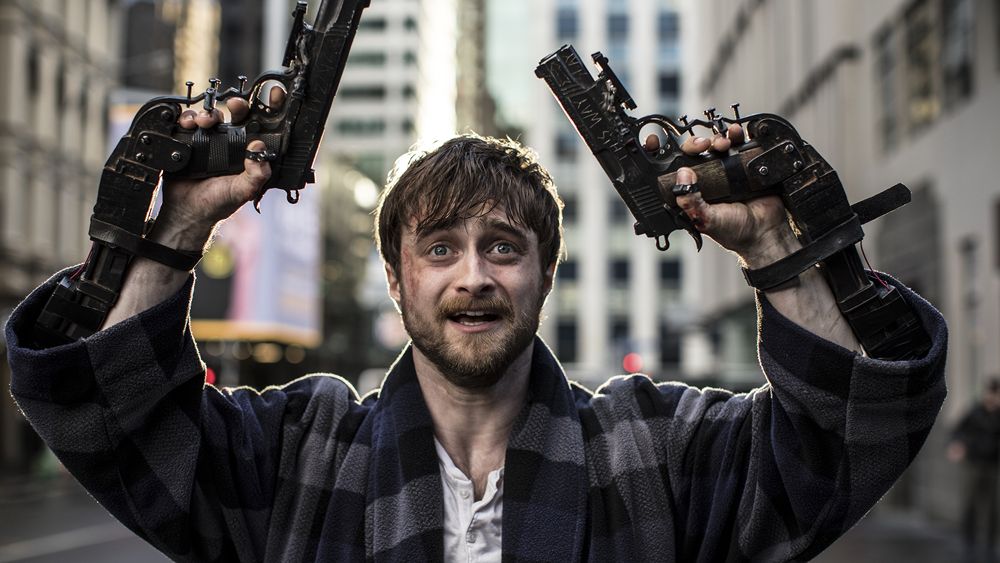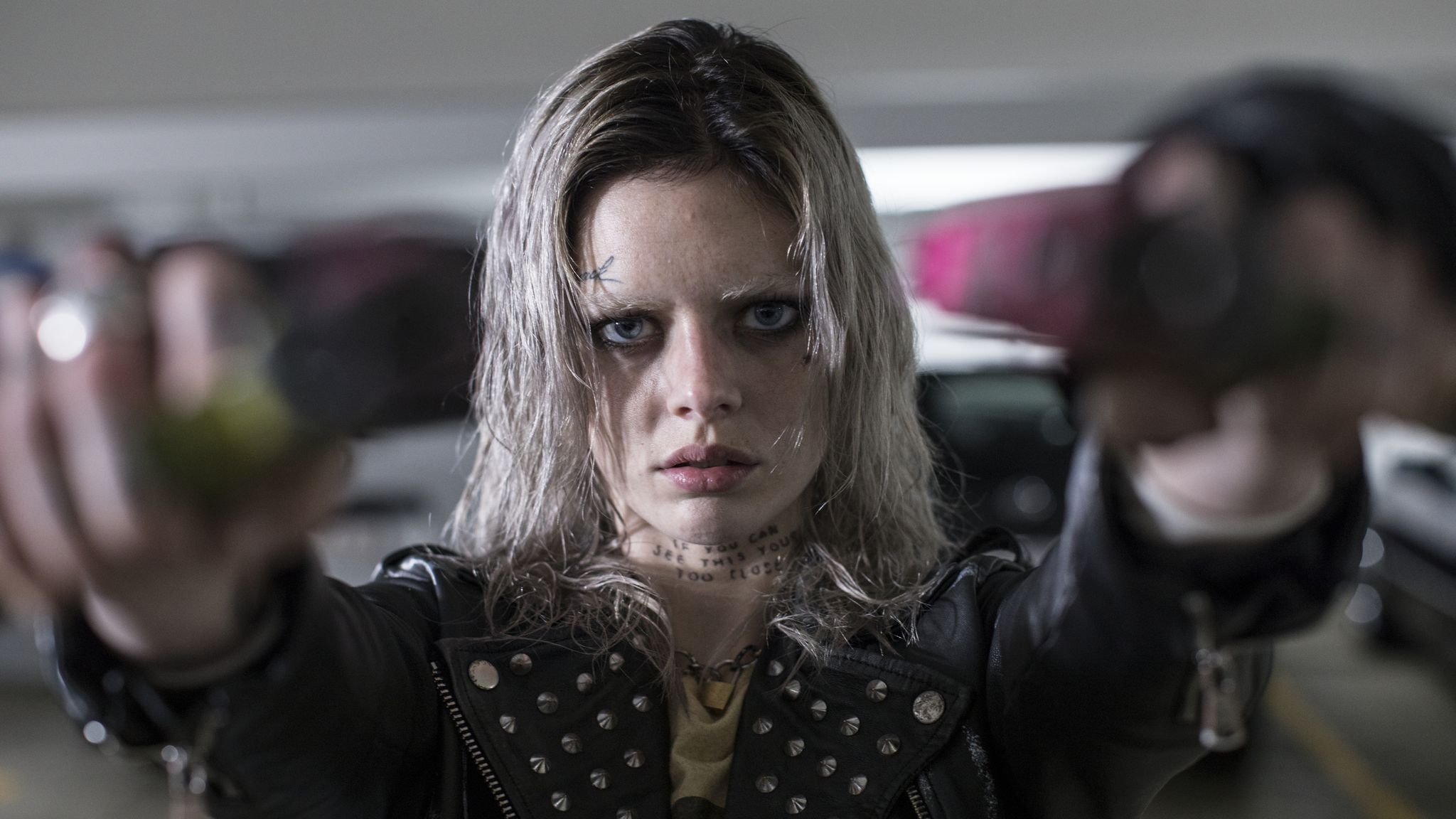GUNS AKIMBO
 Tuesday, February 18, 2020 at 2:37PM
Tuesday, February 18, 2020 at 2:37PM Stars: Daniel Radcliffe, Samara Weaving, Ned Dennehy, Grant Bowler, Natasha Liu Bordizzo, Milo Cawthorne and Rhys Darby.
Writer/Director: Jason Lei Howden
Rating: ★ ★ ★ ★

Two of young Hollywood’s most compelling career trajectories smash into each other with bloody, gleeful giddiness in Jason Lei Howden’s sophomore feature, Guns Akimbo. A splattery, smartly satirical Truman Show/Running Man mash-up for the content-obsessed millennial masses, this head-spinning horror show pits Daniel Radcliffe against Samara Weaving, with the worldwide web watching their increasingly OTT bloodbath unfold.
In the wake of such all-or-nothing lead roles in Horns, Swiss Army Man, Imperium and Jungle, Howden’s follow-up to his 2015 cult hit Deathgasm represents another fearlessly idiosyncratic choice for Daniel Radcliffe (pictured, top). As video-game coder and anti-troll troll Miles, the ‘forever Harry Potter’ excels as the couch-bound nobody whose anonymous postings unwittingly hurtle him into an ultra-violent online gaming landscape known as ‘SKIZM’. Abducted by channel head/tattooed-skull heavy Riktor (a brilliant Ned Dennehy), Miles awakens to an unforeseen development – his hands have been surgically attached, with little finesse, to two high-powered handguns.
His mission is simple – for the entertainment of the millions who watch SKIZM, Miles has 24 hours to kill holdover champion Nix (Weaving) or die trying. Subplots develop (to varying degrees of worthiness), but the real thrill in Guns Akimbo mirrors the experience of the film’s online spectators – watching the carnage mount as Miles, Nix and Riktor propel themselves towards an inevitable confrontation.

Matching Radcliffe’s physical action/comedy prowess beat-for-beat, Samara Weaving (pictured, above) further solidifies her burgeoning reputation as Hollywood’s most exciting Australian actress (sorry Margot, but it’s true). Coming off Mayhem, The Babysitter and Ready or Not (and with a starring role in the upcoming summer comedy, Bill & Ted Face the Music), Weaving is carving a unique niche for herself with bold, bloody, funny character choices in offbeat vehicles as original as Radcliffe’s oeuvre. In hindsight, their paring seemed inevitable and their chemistry proves a treat.
With exteriors shot in Auckland and studio work lensed in Berlin, Jason Lei Howden has overseen a truly international production yet maintains a hyper-kinetic indie sensibility that suits the madness perfectly. He leaves no directorial technique on the table, revving up his action and actors to new heights, just when it seems unlikely anything is left to mine. The gunplay is constant and unashamedly gratuitous; a workplace firefight is played for laughs, although in this time of mass shooting hysteria it may draw ire from some sectors.
The entire feature is boisterous, surface-level fun, but there is some precise skewering of the web-society culture that breeds a vulgar aberration like SKIZM and the many different types that populate it (most of which, ironically, would be the key demographic for this film). Smartly cast well into the support parts (amongst them, the director’s Deathgasm star Milo Cawthorne and the increasingly common bit part from Rhys Darby) and highlighting cinematic stunt work and effects imagery at its premium, Guns Akimbo ought to turn its limited theatrical exposure into long-term cult status.
FANGORIA x MONSTER FEST and MADMAN FILMS will present Guns Akimbo at nationwide Special Event Screenings on Friday February 28th. The film will go into national release on March 5th. For venue and ticket information, click here.
 Action,
Action,  Cult,
Cult,  New Zealand Film
New Zealand Film 




